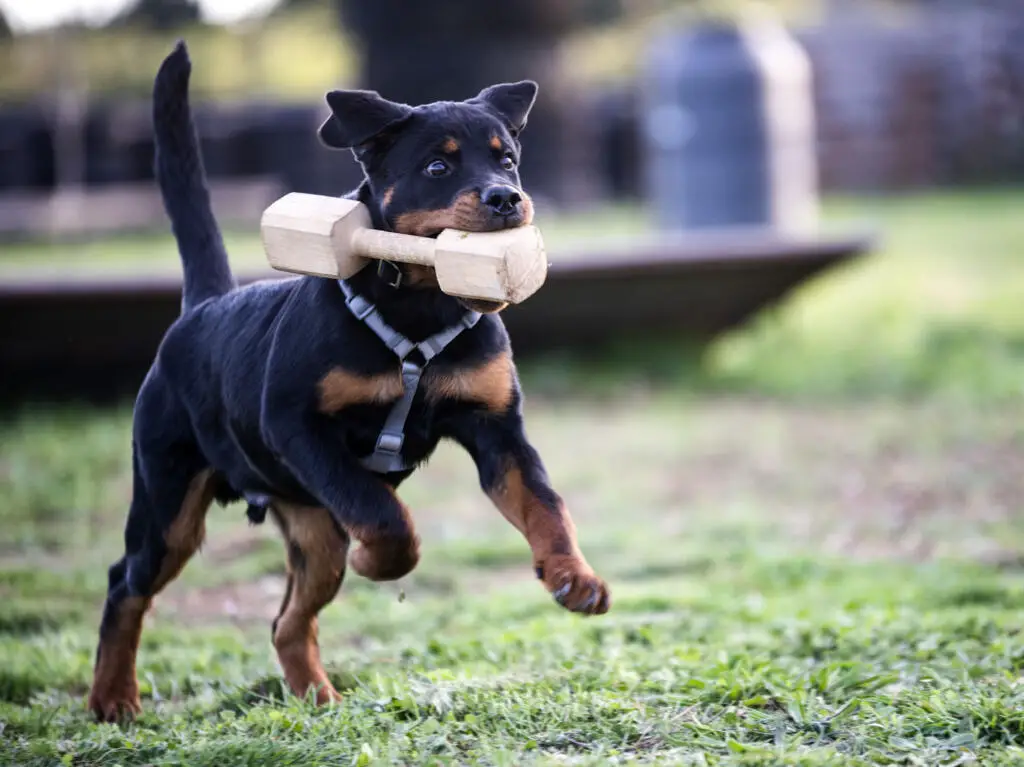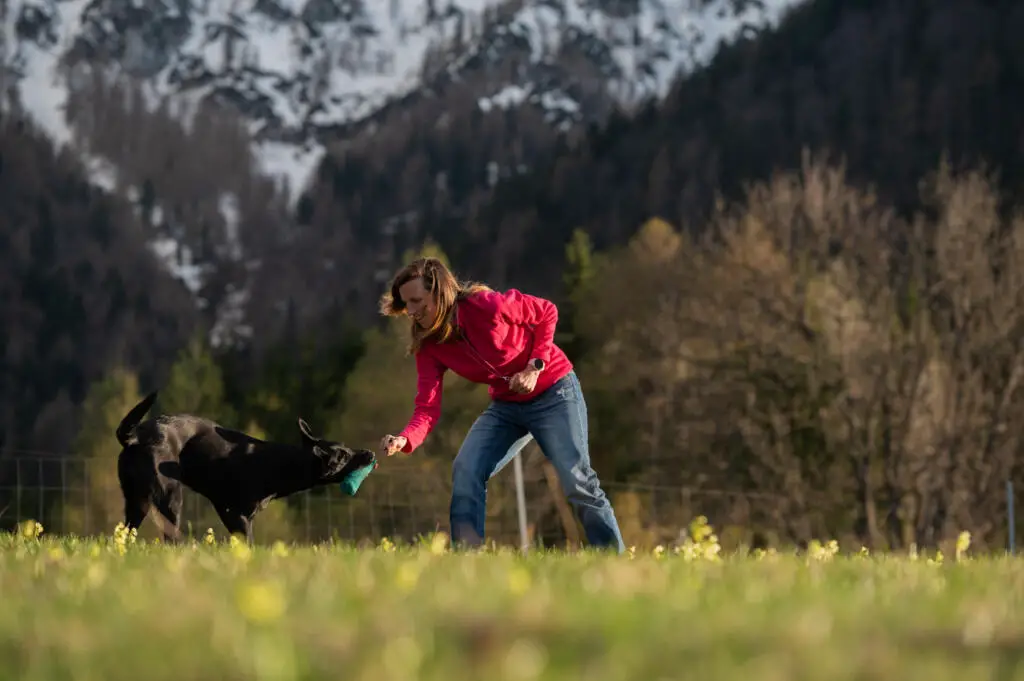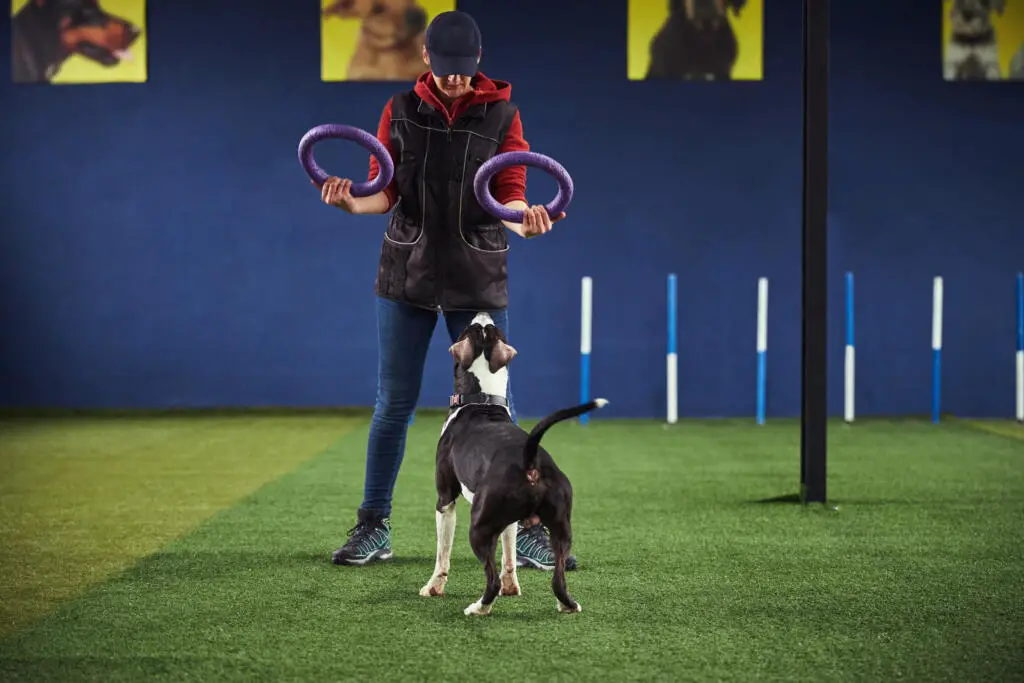Choosing a dog trainer is an important process for owners of all types of dogs. Whether you are looking for puppy training, adult dog training, or training to address behavioral issues such as excessive barking, aggression, or destructive chewing, having the right trainer can make all the difference in the success of the training.

Article contents
Puppy Training
Training a puppy with a dog trainer is an important step in helping them become a well-mannered, socially acceptable pet. When done correctly, it will help ensure your puppy develops into a full-grown pup that is a pleasure to be around.
When training your puppy, keep things short and simple. Puppies have short attention spans and can quickly become bored or frustrated with something that is too complex or difficult. Keep the commands simple and begin with basic commands such as “sit” and “stay.”
It is also important to be consistent with your puppy’s training. Otherwise, they may become confused and not understand what you are trying to teach them. Be sure to be patient with your puppy. Training is a process, and it will take time for them to learn new commands and for the desired behavior to become a habit. Be sure to give them plenty of praise and treats when they do something correctly, as this will help to reinforce the desired behavior.
Adult Dog Training
Training for adult dogs with a dog trainer can be a great way to turn your pet into a well-behaved, obedient companion. It is important to start with basic commands, such as sit and stay, then gradually increase the difficulty as the dog learns. Positive reinforcement is key as it will help to build a strong bond between you and your pet.
Training should be fun and not stressful, so take breaks as needed. Consistency is also key. Practice the same commands daily to ensure that your dog is learning the proper behavior.
Use treats or toys as rewards to encourage your dog to follow instructions. You can create a well-behaved, obedient adult dog with patience, dedication, and proper training.
Behavioral Problems
You will need professional help with a puppy or an adult dog with behavioral problems. You might unknowingly reinforce unruly behavior without being aware of this process. If this is the case, it is time to seek professional help.

How to Choose a Dog Trainer
Here are the ten tips for how to choose a dog trainer or when considering a professional dog training service.
1. Get Recommendations
Word-of-mouth is an excellent way to find a good dog trainer or dog training service. Ask your veterinarian, other dog owners, and local animal rescue organizations for recommendations. Don’t forget to ask your friends on social media as well.
2. Research Credentials and Experience
Look for a trainer certified by a recognized organization, such as the Certification Council for Professional Dog Trainers (CCPDT). A qualified trainer will have experience in the type of training you need. For example, if you are looking for puppy training, find a trainer who specializes in that type of training.
3. Ask Questions During the Initial Consultation
When you meet with a potential trainer, ask questions about their experience and methods. Find out what type of training they offer, how long the sessions are, and how often they take place.
4. Check References
Ask for references from past clients. Speak with them to understand how the trainer works and how successful the training was.
5. Observe a Training Session
If possible, observe a session that the trainer is teaching. This will give you an idea of their teaching style and the results they achieve.

6. Ask About Training Methods
Find out what type of training methods the trainer uses. Positive reinforcement and reward-based methods are usually more effective and less stressful for dogs. Avoid trainers who use punishment-based methods, such as physical corrections and dominance theory.
7. Ask About Dealing With Problem Behaviors
Ask the trainer how they address problem behaviors, such as barking, aggression, and chewing. A good trainer will have a positive approach to dealing with these behaviors, such as positive reinforcement and redirection.
8. Find Out the Cost
Ask about the cost of the training before you commit. Some trainers offer packages that may be more cost-effective than individual sessions.
9. Determine the Trainer’s Availability
Ask the trainer what openings they have available in their schedule. Make sure they can accommodate your schedule and that there is enough time for you to get the most out of the sessions.
10. Make Sure You Feel Comfortable
Ultimately, the most important factor when choosing a dog trainer is that you feel comfortable with them. Both you and your dog will learn together. Make sure you trust your trainer and feel confident that they will be able to help you and your dog.
These ten tips will help you find the right dog trainer for you and your dog. With the right trainer, your dog will get the training needed to be happy and well-behaved.
